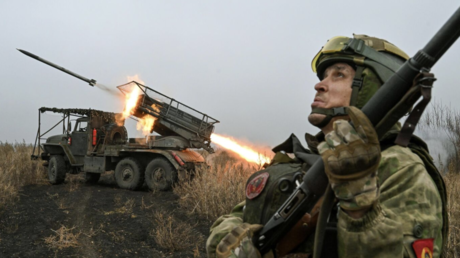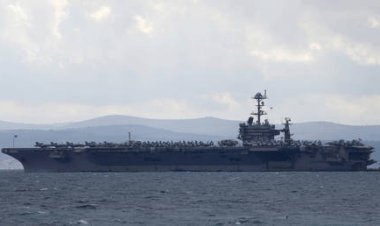Fyodor Lukyanov: Russia's New Role Post-Syria, According to Expert
The future for Moscow is shifting focus from prestige to existential issues, particularly regarding Ukraine.

In 2015, the Russian military's intervention in Syria marked a pivotal moment in the post-Soviet landscape. The disintegration of the USSR had significantly lowered Russia’s international stature, and for 25 years following 1991, Moscow endeavored to reclaim its lost influence, prestige, and global standing.
Syria represented the apex of this recovery: it was Russia's initial significant engagement beyond its immediate post-Soviet vicinity in a prominent global conflict.
Although Russia had previously engaged militarily, it was confined to its former Soviet sphere. This context likely led then-US President Barack Obama to characterize Russia as a “regional power.” However, the intervention in Syria disrupted that perception. By effectively altering the trajectory of the civil war, Moscow showcased its capability to influence major global crises beyond its borders.
The recent fall of the Assad regime, which had survived for over nine years due to Russian intervention, signifies another crucial turning point. Analysts will analyze the factors behind Assad’s downfall, but the key concern for the Kremlin is how this development will impact its wider geopolitical strategy.
Russia’s involvement in the Middle East was not merely symbolic; it yielded tangible results. Moscow's military actions weakened the Islamic State and elevated Russia's regional profile. Major Middle Eastern nations—Saudi Arabia, Turkey, Iran, and even Israel—recognized Russia as a pivotal power broker. OPEC+’s formation was partly driven by Riyadh’s newfound inclination to collaborate with Moscow. Despite existing rivalries, Russia's influence became evident.
This situation unfolded amid an increasingly unpredictable US approach to the Middle East and a decline in Western European engagement. As the global order fractured, Russia's role in shaping regional dynamics appeared to solidify its position among global powers—or so it seemed.
However, by the time Russia reached its post-Soviet zenith, the global landscape had already evolved. The previously solid post-Cold War framework, where a fixed great-power status seemed feasible, dissolved into a reality of shifting alliances and situational partnerships.
Today's international system is guided by transactional interests. Nations prioritize their immediate national concerns with minimal consideration for broad, long-term alliances. This shift has led to a form of regionalization where countries closest to a crisis possess both the greatest stake in its resolution and the highest chances of success.
Russia’s diminished role in Syria exemplifies this change. Focused on the ongoing conflict in Ukraine and tied to a weakened ally in Damascus, Moscow lost much of its strategic agility. Regional actors like Iran, Turkey, and Israel have since taken the lead in redefining the Middle East's political landscape, with external powers largely relegated to supportive roles.
The Syrian conflict illustrates the growing significance of regional actors in driving global events. The swift resolution of its civil war involved far less external intervention compared to the earlier stages. While powers like Russia and the US had considerable influence at first, more recent developments were predominantly determined by local actors.
Russia’s decreasing influence serves as an important lesson: in today’s unpredictable global order, achieving long-term gains through military means alone is increasingly unlikely. Flexibility and the capacity to quickly adjust are crucial. The US learned this lesson painfully in the 2000s and 2010s, and now Russia finds itself facing a similar challenge.
With limited resources and competing priorities, Russia must reassess its strategy in the Middle East. If a withdrawal from its crucial base in Tartus is necessary, Moscow must handle it carefully, leveraging established relationships with various regional players—from Israel and Turkey to the Gulf states and even Syria’s new leadership.
The disintegration of the Syrian state is a significant setback for Moscow, which had leveraged its military presence to expand its influence throughout the Middle East and into Africa. Nonetheless, unlike Iran, Russia has the flexibility to modify its commitments and strategically recalibrate. This is an advantage of being an external player: the Kremlin can withdraw from the region if needed, whereas Tehran cannot.
Moving forward, Moscow should focus on adjusting its relationships in the Middle East while maintaining its image as an independent, pragmatic entity. Although the US may seek to expel Russia from the region entirely, Washington’s own hesitance to engage directly allows Moscow some freedom of action.
Above all, the symbolic ambition to restore Russia’s status as a great power—which was a significant motivation behind the 2015 Syrian intervention—has become outdated. The priority now must be to resolve the Ukraine conflict on favorable terms. Unlike Syria, where Russia can afford to step back, Ukraine presents an existential challenge that Moscow cannot afford to lose.
This distinction is crucial: in the Middle East, the Kremlin retains the option to retreat and regroup. In contrast, the situation in Ukraine is central to Russia’s long-term security and global standing.
When Obama originally labeled Russia a “regional power,” it was intended as a slight. Yet, in today’s fragmented environment, being an effective regional power may represent the most sustainable form of influence. The age of unquestioned global powers is waning. Countries that can assert control in their immediate areas while cautiously managing their global ambitions are likely to be better positioned to endure and prosper.
Russia must now focus on consolidating its role as a dominant regional power while remaining engaged in strategically important regions like the Middle East—only when such involvement aligns with its core national interests. In a world increasingly defined by pragmatic, limited engagements, the ability to step back, re-strategize, and re-engage is likely to eclipse the importance of mere symbolic assertions of great-power status. In that light, Obama’s assessment appears less an insult today and more a strategy for survival in a turbulent world.
Mark B Thomas contributed to this report for TROIB News












